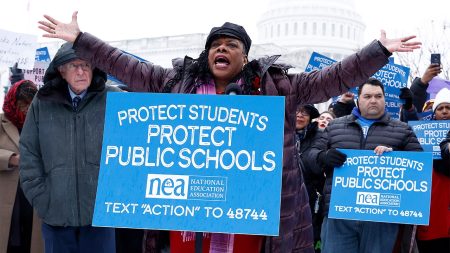Texas Midwife Case Expands: Eight More Individuals Charged in Abortion Investigation
In a significant development in the ongoing case against Houston-area midwife Maria Margarita Rojas, Texas Attorney General Ken Paxton announced the arrest and indictment of eight additional individuals connected to her clinics. These individuals now face charges for practicing medicine without a license, expanding what has become a highly contentious legal battle in Texas. Rojas herself was previously charged earlier this year under the Texas Human Life Protection Act, making her the first person to face charges under this strict abortion law. The 49-year-old midwife is currently fighting 15 felony counts, including three for allegedly performing illegal abortions and 12 for practicing medicine without a proper license.
The newly indicted individuals – identified as Yaimara Hernandez Alvarez, Alina Valeron Leon, Dalia Coromoto Yanez, Yhonder Lebrun Acosta, Liunet Grandales Estrada, Gerardo Otero Aguero, Sabiel Bosch Gongora, and Jose Manuel Cendan Ley – allegedly worked at Rojas’s network of clinics located throughout the Houston area in Waller, Cypress, Spring, and Katy. Attorney General Paxton, who is currently running for U.S. Senate, characterized the group in stark terms as “a cabal of abortion-loving radicals” who “endangered the very people they pretended to help.” His announcement emphasized his commitment to enforcing Texas’s abortion laws, stating that “beyond being illegal, it is evil,” and promising that “these dens of fake doctors will not be allowed to operate in Texas.” This aggressive language highlights the intensely politicized nature of the case, which occurs against the backdrop of Texas’s strict abortion restrictions following the Supreme Court’s overturning of Roe v. Wade.
The Center for Reproductive Rights has taken up Rojas’s defense in a separate civil lawsuit and strongly contests the state’s characterization of both her and her colleagues’ work. Jenna Hudson, Senior Counsel for the organization, described the case against Rojas as a “sham” and the new indictments as “an escalation of Texas’ scare campaign against doctors and healthcare workers.” The organization’s perspective offers a starkly different view of Rojas, describing her as “a licensed midwife dedicated to helping her pregnant patients.” Their defense of Rojas frames her as a healthcare provider primarily serving vulnerable communities, rather than someone operating outside the boundaries of proper medical practice as alleged by the state.
Hudson further criticized Paxton’s actions, claiming he “heartlessly shut down several clinics that provided lawful, affordable services to families around Houston, most of whom were low-income, uninsured immigrants with few options for health care.” This characterization presents the case as potentially affecting not just abortion access but broader reproductive healthcare services for marginalized populations. The Center for Reproductive Rights also suggested potential bias in the state’s enforcement actions, noting, “It’s no coincidence that he is targeting Rojas and these clinics amid the widespread anti-immigrant sentiment nationwide.” This framing attempts to place the legal case within a broader context of immigration politics and healthcare access inequities affecting immigrant communities in Texas.
The expanding case represents another flashpoint in the ongoing national debate over abortion access following the Supreme Court’s decision in Dobbs v. Jackson Women’s Health Organization, which overturned federal abortion protections. Texas has emerged as one of the states with the most restrictive abortion laws in the country, and this case demonstrates the state’s willingness to pursue criminal charges against individuals alleged to be operating outside those restrictions. For supporters of Texas’s abortion laws, these arrests represent appropriate enforcement of democratically enacted legislation designed to protect unborn life. For critics, they represent an alarming criminalization of healthcare providers and a further restriction on reproductive healthcare access, particularly for vulnerable populations.
As this case proceeds through the Texas legal system, it will likely continue to draw national attention as a test case for how states with strict abortion bans will enforce their laws. The contrasting narratives – one of law enforcement against unlicensed medical practitioners endangering patients, the other of persecution against healthcare providers serving marginalized communities – reflect the deep divisions in American society regarding abortion access and reproductive healthcare. Meanwhile, individuals like Rojas and the eight newly indicted people face serious legal consequences that could include substantial prison time if convicted. For communities served by these clinics, particularly immigrant and low-income populations, the immediate impact may be a further reduction in accessible healthcare options in an already challenging healthcare landscape.











